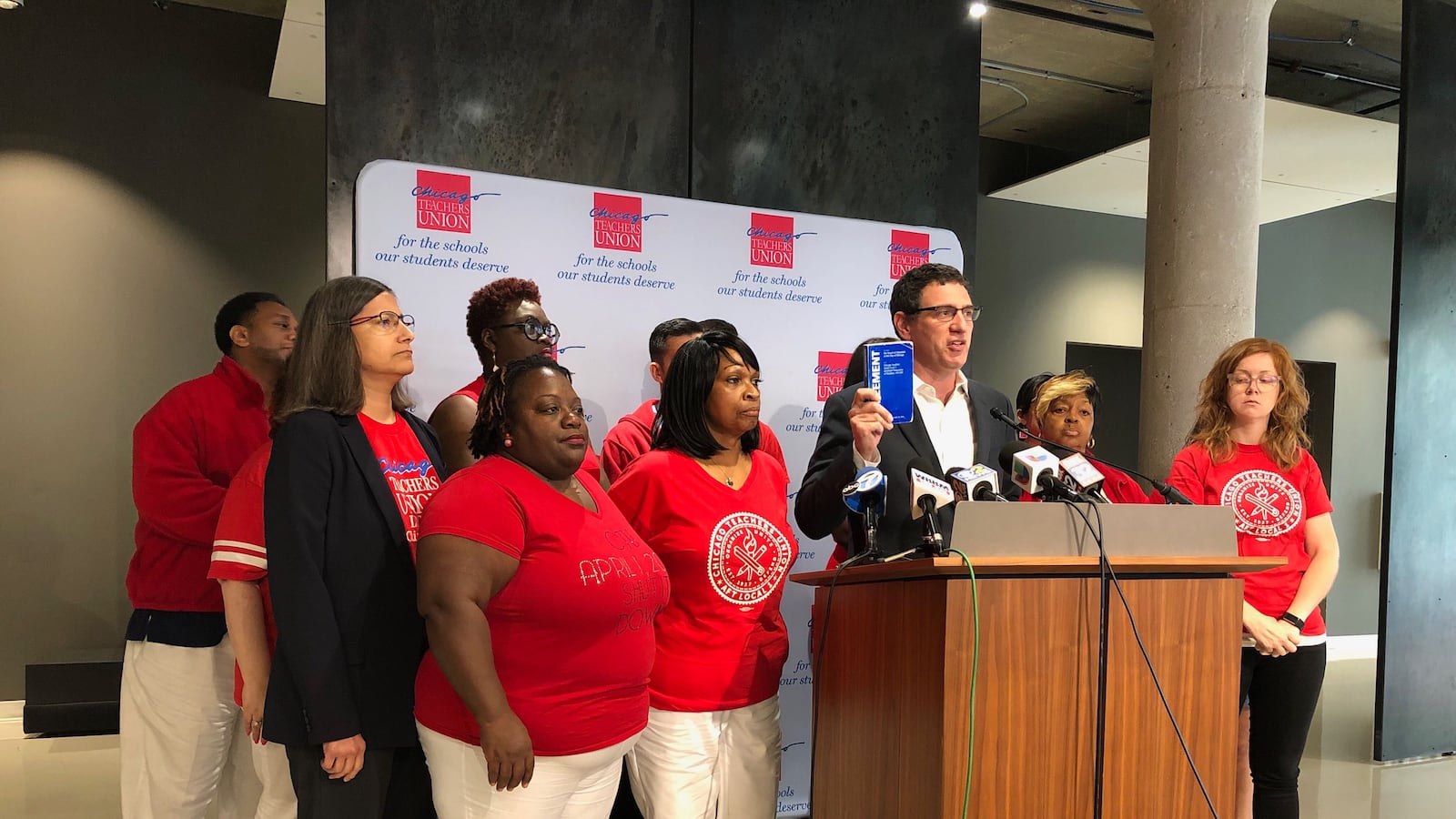In their first day without a contract, teachers union officials have gotten louder and more aggressive in threatening a strike in the fall unless negotiations move forward, their latest effort to elicit a public response from Chicago’s new mayor who has remained mostly mum on negotiations.
“We started these negotiations more than six months ago. We’re stuck in neutral,” said Jesse Sharkey, president of the Chicago Teachers Union, at a press conference held at union headquarters on Monday morning. “Mayor Lightfoot’s team has been talking and not acting.”
The contract between the union and the school district expired at midnight Sunday. The most recent bargaining session was held last week.
The union is demanding a 5% pay raise that it argues could be funded by raising taxes on the wealthy; increased benefits; a full-time nurse in every school; trained staff to help students dealing with trauma; and an expansion of existing “community schools” that partner with local groups.
In a written statement, Lightfoot’s team said that it has been bargaining in good faith. “Mayor Lightfoot has been clear from day one about her promise to deliver bold reforms to our public school system that will put equity first,” said Jordan Troy, a representative of the mayor’s office.
The rhetoric from the union echoes the language the group has used in its high-stakes labor disputes throughout the tenure of former Mayor Rahm Emanuel. But Lightfoot has differed from her predecessor in calling for some of the things the union has advocated for, such as more resources for South and West side communities and investing in a small but comprehensive youth-based violence prevention program.
But the union leadership has not softened its tone since the changing of the guard.
“This contract represents the promises that the city of Chicago and administration make to the people who run those schools, and right now we are not seeing any commitment in writing,” Sharkey said Monday.
Under state law the union can strike only on pay and working conditions, even while asking for changes to class sizes and evaluation methods.
Sharkey said that since the union negotiated its last contract, under former Mayor Rahm Emanuel in the fall of 2016, the group’s 20,000 members have seen spending freezes in their classrooms and furloughs following the statewide budget stalemate in February 2017, and a hike in health insurance costs.
To compensate for those cuts, he wants to fund teacher raises by taxing wealthy Chicagoans. “I am not going to apologize for asking for a good raise,” he said.
A mediator and a fact-finder both are already involved in the negotiations. The next step to pressure the mayor could be a strike authorization vote, which the union’s House of Delegates would authorize.
Despite the union’s heated rhetoric, it is not pushing for a showdown as quickly as it did in 2012. Then, by June 11, 90% of teachers voting had authorized a strike. On Sept. 10 that year they walked out.
The union said Monday that it expects negotiations to continue this week.

